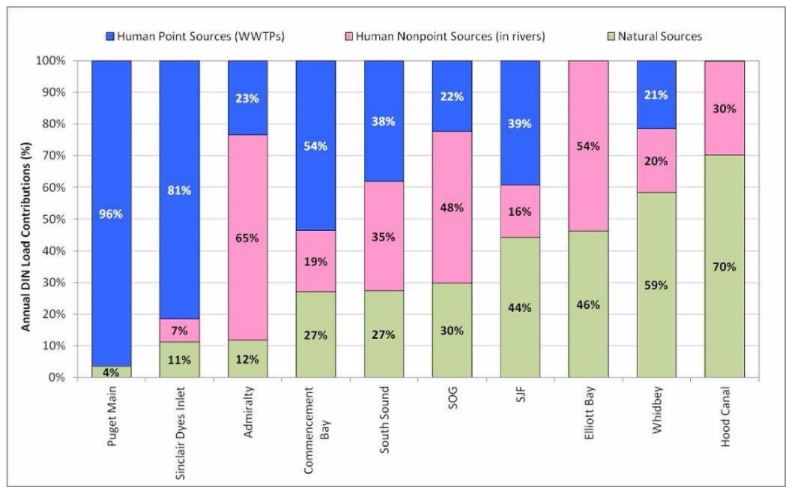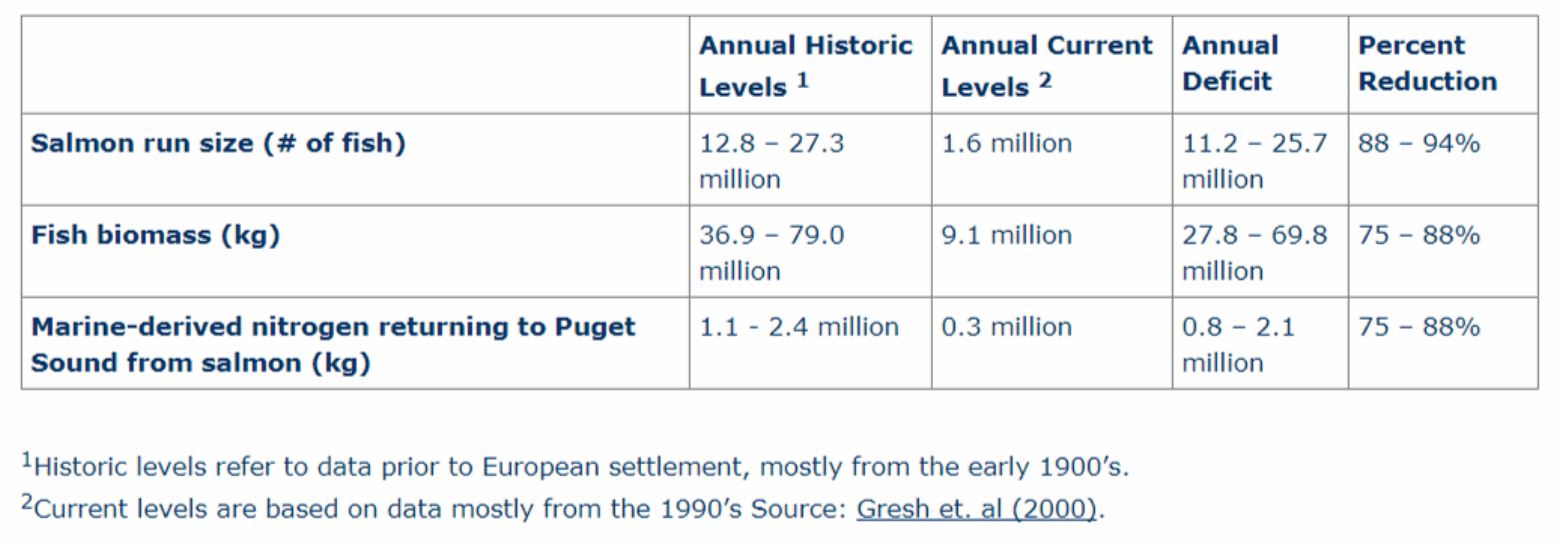Natural Sources
- Home
- Natural Sources
Natural Sources
Natural sources of nitrogen include wildlife, vegetation (e.g. from N-fixing plants such as alder trees), instream sources (e.g. salmon carcasses and litterfall), and natural nitrogen in the atmosphere.
Nitrogen is also a by-product of many natural processes that occur in watersheds, rivers, and streams, such as the decomposition of plants and organisms.
We have estimated that just under 30% of the river nitrogen load entering Puget Sound is from natural sources. This estimate, however, varies spatially and might be refined in ongoing studies.

Relative contributions of annual dissolved inorganic nitrogen load to different regions of Puget Sound. Source: Mohamedali et al., 2011.
Nitrogen from spawning salmon

Spawning salmon bring marine-derived nitrogen (MDN) to freshwater systems from the years they spent growing and feeding in the ocean. After spawning in Puget Sound rivers and streams, the salmon die, and nitrogen within the carcasses is made available to aquatic organisms. Fungi, bacteria, macroinvertebrates, and mammals feed on the carcasses, thereby transforming this nitrogen into inorganic forms that are released into the water as waste products.
Since salmon returns have declined drastically over the past century, there are fewer salmon carcasses and therefore a deficit of MDN (and phosphorus) in Puget Sound rivers and streams, relative to historic levels. The size of returning salmon has also declined.
This table presents estimates of the magnitude of nitrogen loss as a result of declining salmon runs in Puget Sound by comparing historic (prior to European settlement) and current levels of salmon runs (Gresh et. al., 2000).
The loss of 0.8 – 2.1 million kg/year of MDN translates to an estimated 2,300-5,800 kg/day of MDN that is not entering Puget Sound rivers and streams. MDN plays an important role in the ecosystem, providing nitrogen in a form that is different from the nitrogen contained in human sources – therefore, the deficit of naturally-sourced MDN cannot be offset by increases in nitrogen loading due to human activities in watersheds.
